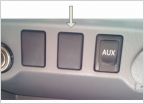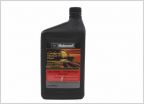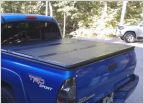-
Welcome to Tacoma World!
You are currently viewing as a guest! To get full-access, you need to register for a FREE account.
As a registered member, you’ll be able to:- Participate in all Tacoma discussion topics
- Communicate privately with other Tacoma owners from around the world
- Post your own photos in our Members Gallery
- Access all special features of the site
Gas Octane
Discussion in '2nd Gen. Tacomas (2005-2015)' started by BreezyTaco, May 9, 2009.
Page 25 of 51
Page 25 of 51


 Blank Inserts for switches
Blank Inserts for switches Head lights
Head lights Manual Transmission Fluid Change?
Manual Transmission Fluid Change? Truck is rattling, especially at 45mph - 55mph, and having a hard time accelerating up hill.
Truck is rattling, especially at 45mph - 55mph, and having a hard time accelerating up hill. Tonneau Covers
Tonneau Covers Spacers
Spacers
